Timothy O’Leary is the Head of the School of Humanities at the University of Hong Kong and concern group HKU Vigilance. He was recently elected as a member of the university council and is an outspoken supporter of academic freedom and institutional autonomy at Hong Kong’s universities. HKFP’s Ryan Kilpatrick spoke to him about his concerns.
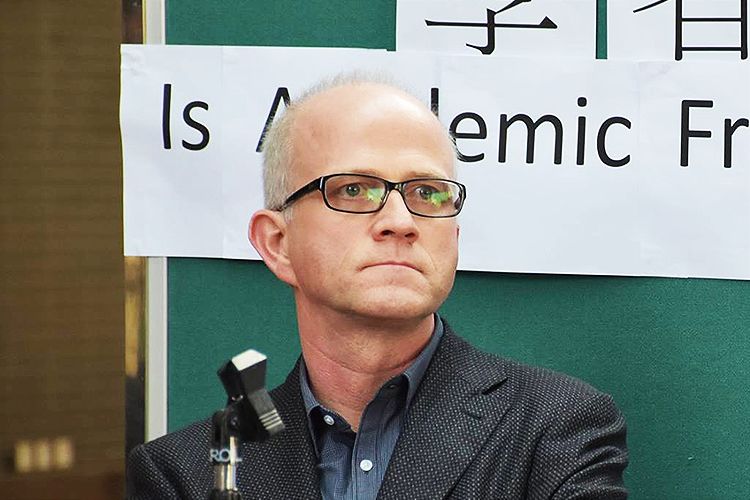
In a talk on campus recently you mentioned that safeguards on institutional autonomy in Hong Kong not only need to be greater than they currently are but, in light of Hong Kong’s political system, need to be even greater than they are in democratic societies like the United Kingdom or Australia. Why do you feel this is necessary and what potential safeguards do you have in mind?
Basically, the reasoning is that with the political situation that we have in Hong Kong, it is more worrying that the political leader has the kind of power that he has over the universities—because the political leader of Hong Kong is not accountable to the people of Hong Kong. The political leader of Hong Kong is accountable to the Beijing government. That’s the nature of the concern. There may be some universities in liberal, democratic societies in which political leaders have certain powers; but even if they do, at least those people can vote them out if they don’t like what they’re doing. This can’t happen in Hong Kong. That’s why I think it’s more important.
What would be the appropriate safeguards? I think the top one has to be that the chief executive should not be chancellor of the universities in Hong Kong. That would solve a lot of problems. If the chief executive remains as chancellor then the chancellorship should be a purely ceremonial role—he should not have the power to appoint members to the Council and he especially should not have the power to appoint the chairman.
On the HKU Council, the chief executive appoints six members plus the chairman, then the Council appoints another six members and then six are elected from different sectors within the University. The worry about that—and we saw this all come out in the Johannes Chan case—is that the potential political influence is very direct.
Do you think this proportion should be tweaked so more elected representatives sit on the Council?
For me, the biggest change necessary is that the chief executive should not be the chancellor. So far as the actual details of how the Council is composed, there’s going to be a review of our Council and I’m happy for outside people to come in and give their opinions on what would be most appropriate. I think everyone agrees that it’s fine and justifiable to have external members on the Council. I think maybe the balance could be better but there’s also the issue of how the outside members are chosen. There is room to improve that mix but the issue of the chancellor is the main issue.
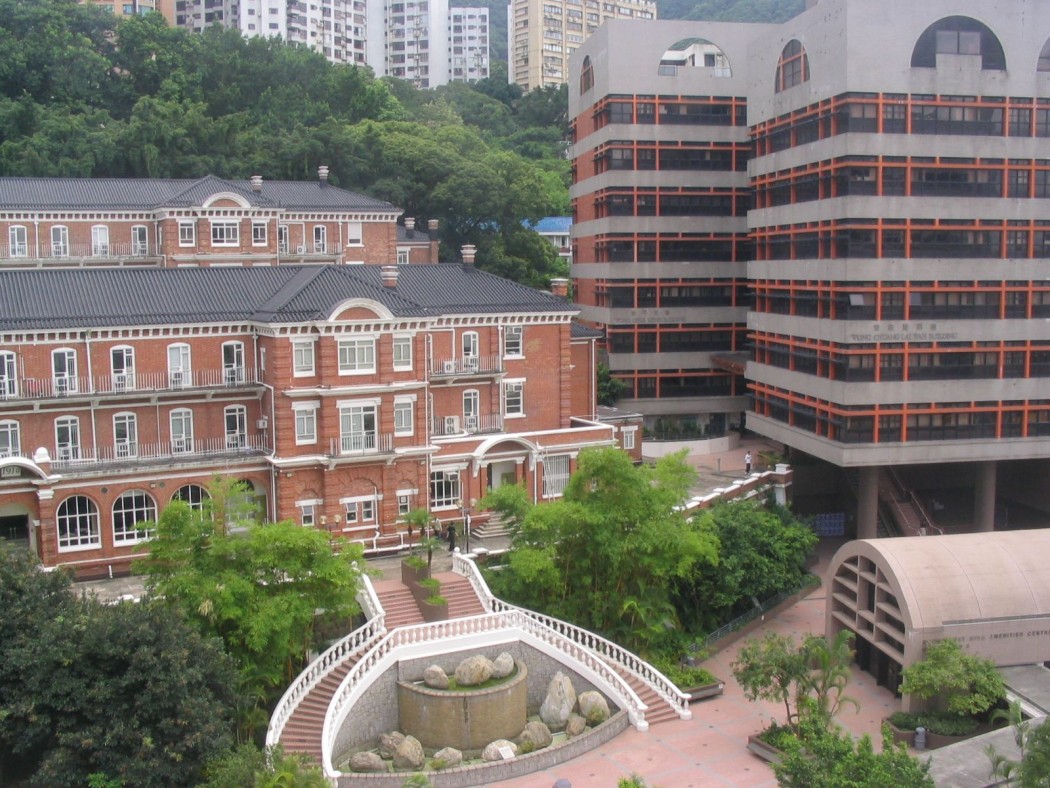
How many of the outside members are currently political appointees?
Six are directly appointed by the chancellor and six are selected by the Council itself, which has a nominations committee that will recommend people to be appointed to the Council and the Council will endorse those recommendations.
Are you confident in the review process initiated by the Council?
My prediction is that the review panel would be set up in the next couple of months. At the moment, I do have confidence in it. I think we will have a review panel that people will see as sufficiently independent to do its job properly.
Was the governance structure very different at universities where you taught before?
The interesting thing is that in most universities, people don’t even think about that or know about it. They don’t have to. When I taught there it was never an issue. In the Australian system, the major concern was always general government cuts to universities, without specifically targeting certain institutions or governing councils.
How do you feel the Council is working with Arthur Li as chairman so far?
I was publicly opposed to his appointment as chairman before it happened. Now that he is chairman, of course I am willing to work with him to bring about the changes that we want and do the work that we have to do on the Council. I think that a chairperson has to do two things: they have to be able to facilitate discussion and listen to people and allow, wherever possible, some kind of consensus to emerge; they also have to be efficient—decisions have to be taken as certain times. I think the current chairman of the Council is better at one of those than the other.
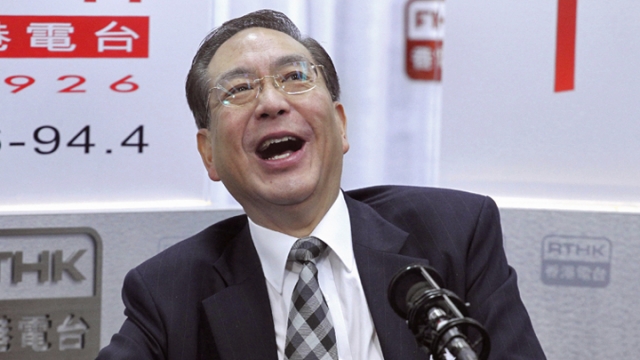
How did you feel about Billy Fung’s expulsion from the Council?
My understanding is that the rule that we invoked said that if a member of Council was an immediate threat to the security or safety of the Council then it has the right to expel that person immediately. I don’t believe that Billy was an immediate threat to members of the Council so personally I disagree with that judgement. We were in the convention centre surrounded by security and there were no students. The new president of the student union was outside, she was the only one. There was no danger and we knew that. I didn’t accept that argument. Since last summer, it seems that what the Council is doing a lot in reaction to events is taking these knee-jerk reactions and short-term solutions—such as imposing a much stronger agreement on confidentiality and forcing Billy alone to sign it. As Billy himself pointed out, they never showed him any written statement, he was just asked if he would sign a statement saying this. Procedurally there is a worry about a member being presented with this deal on the spot, it’s quite worrying—and of course that just one member was asked to do so.
What spurred you to get involved in the politics of University governance?
I was very angry, and got angrier as the Johannes Chan saga dragged on. I was angry and I was concerned about the direction we were going in. A lot of people in the university were very concerned but there was kind of a vacuum in leadership speaking on that. I constantly get people saying that they really appreciate what I’m doing and I recognize that not everybody wants to do this kind of thing.
Do you perceive any conflict between being a member of the Council and convenor of concern group HKU Vigilance?
The significant problem would be when Council makes a decision I disagree with, because there are those who say that Council members should not go out and talk to the media about how they disagree with Council decisions. Peter Mathieson, for examples, tends to say that the Council made a collective decision and we all stand by it—which has always been his attitude, whether or not he personally agrees with decisions. I think that’s one possible view but my position on the Council as someone who is elected by staff members puts me in a different role, and I certainly feel that staff and students want me to speak out. I’m a little bit conflicted about that but I’m happy to do it because I think I’ve put myself in that position and I now have an obligation to speak on those things.
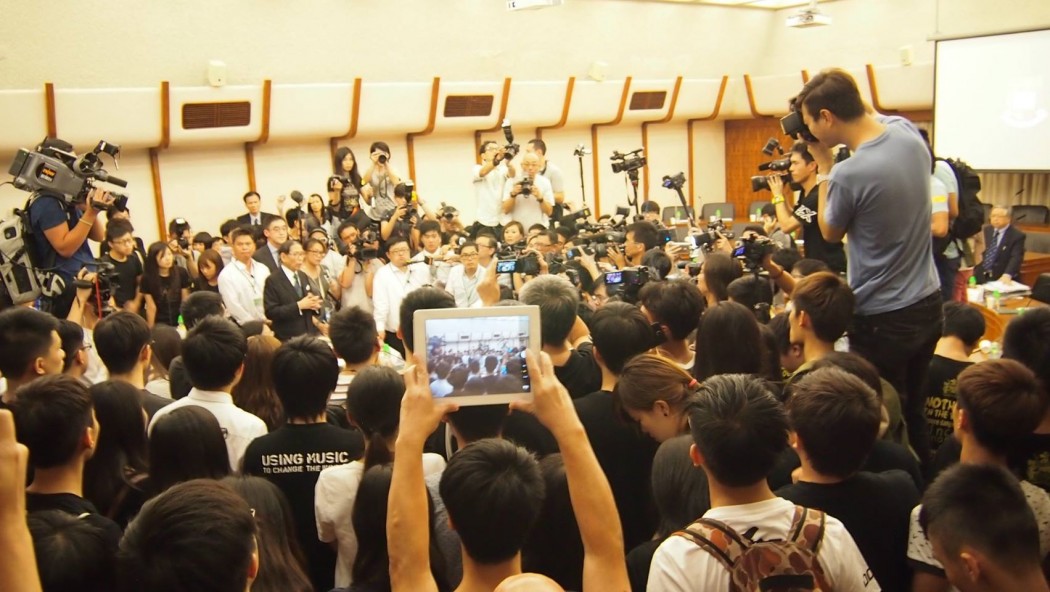
Do the elected members ever feel disempowered by the presence of outsiders and political appointees on the Council?
From the outside, it’s very easy to think that there are pro- and anti-establishment camps within the Council, but I would caution against that. There are appointees who share our concerns. All members of Council do genuinely want the best for the University. We can disagree on what that is but I think it’s important for elected members to talk to external members to convey what it’s like within the University. I think that’s part of my job on the Council. If I were put on the Board of Directors of a bank, I would have to listen to people there to understand how it operates. I would hope that external members [of the Council] take the same attitude. [HKU Council Treasurer] Margaret Leung has said to the media that she regrets that there is this internal-external divide. She’s a graduate of HKU and feels a connection to it, but is spoken about and made to feel like an outsider. I accept that and feel it is an unfortunate effect of polarization. One of the things I’m always pushing for is taking measures to decrease the polarization and certainly not to aggravate it.
You said in a recent talk on campus that the idea of keeping scholarship “pure” of politics is a misconception. What do you think the relationship between academia and politics should be?
It all depends on the political context. One of the reasons why the University, and in particular the Faculty of Law, were taking heat was because the [law] faculty is politically involved—not just because of [OCLP leader] Benny Tai but because there is a lot of serious discussion about the constitutional basis of Hong Kong. If you have the head of the Liaison Office make some comment about a chief executive being “transcendent” under the Basic Law, and then you have a professor say, “wait, I was on the committee that drafted the Basic Law and you are wrong,” this is really significant. This means that a constitutional law expert is politicised in this context.
When I was in Australia, a right-wing government came to power in the mid-90s and there was a lot of politicised discussion about the status of aboriginal people. Scholarship relating to aboriginal culture was necessarily involved in politics—and quite rightly involved. That was a politicised issue at the time and the point is that it’s not a bad thing. Usually when people say “politicised” they mean it’s a bad thing but I’m saying it isn’t necessarily. Given the political context in Hong Kong right now, legal scholarship is highly politicised. Here at HKU, the basis for what we do is under threat. That means that everything we do is politicised and we, as members of this institution, have to take up that responsibility to safeguard its future. If people say, “that’s politics,” then sure, that’s politics.
Is the “politicisation” concern unique to Hong Kong?
Students have been significant political actors for a long time. Look at Paris in May, 1968. Look at Tiananmen Square. Look at the Occupy protests around the world. Look at what happened in the UK a couple of years ago over tuition fees. Here, Benny Tai talked and talked about Occupy Central but it was the students who did it. I think the really interesting thing about Hong Kong is that high school students had a really effective campaign against the National Education curriculum a couple of years ago. I don’t know if there are any other cases in the world where high school students managed to change government policy. It’s extraordinary. I think in any of these situations you will find conservative voices who say, “those students are being politicised, they should just go back to studying.” That will always happen because it’s an easy criticism to make.
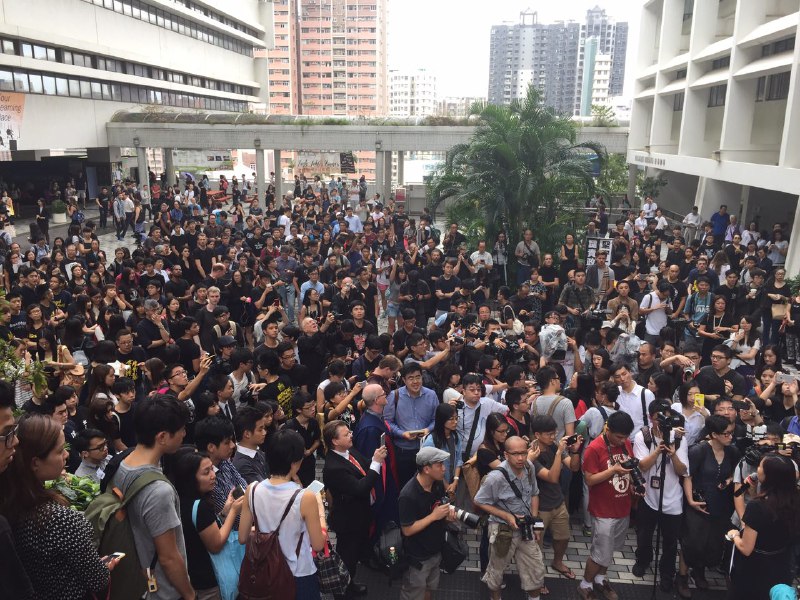
Do you sense a change in the atmosphere on campus since the pro-democracy Occupy movement?
Post-Occupy, the target shifted to the universities themselves. What’s happening to the universities now is a response to how closely involved professors and students were with the Occupy movement, and there is an attempt to bring them into line by making these very political appointments to councils and so on. That has made people at universities much more concerned about their own institutions. A lot of people fear that we are a target now and are not happy about it.
What is your impression of new Student Union president Althea Suen Hiu-
She seems to have strong principles but is also open to listening to others, which is a good combination. She will talk to other members of Council and I hope that, when she meets with Arthur Li, both sides will be non-confrontational and have an honest, open sharing with each other. I think that’s what needs to happen and she will do that. She said she would be willing to break confidentiality but so would I in extreme circumstances.
How do you feel about the move recently to hold Council meetings off campus, citing security concerns?
I think it’s justified in the aftermath of the January meeting. Many of the Council members were genuinely upset and felt threatened. Personally, though, I think it’s very important for us to move back to campus as soon as possible. It is symbolically important. For the Council to be comfortable to do that, they have to become better at building bridges with students. What happened in January doesn’t help their cause—which is the same as my cause. It was a pity that it happened. There is a certain logic in this kind of protest when you are demanding something and you are not given it immediately, creating the motivation to escalate your protest. I think things will quiet down once the review process is announced in the next couple of months and then the Council can move their meetings back to campus. This will be a time for students to meet the review panel and present their arguments rather than engage in protests.
